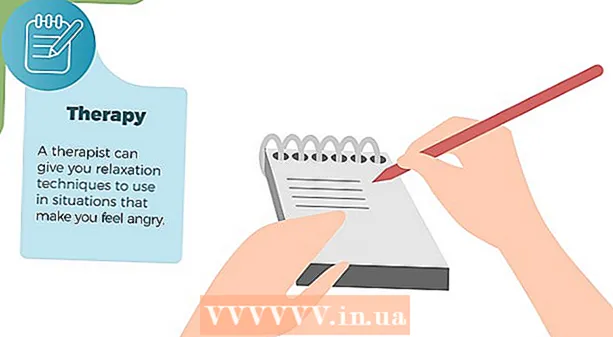Author:
Gregory Harris
Date Of Creation:
8 August 2021
Update Date:
1 July 2024

Content
Anterograde amnesia is a type of amnesia in which the memory of the events that followed the trauma is lost. Usually it is associated with difficulties in transferring information from short-term memory to long-term memory. A person with this memory disorder cannot remember what he did a few minutes ago, with whom he communicated, cannot remember new names and the like. However, the ability to assimilate new material remains.
Steps
- 1 Organize your space. Get rid of unnecessary things that you don't use and that bring up unpleasant memories. Move them away or throw them away. Place the most necessary things in sight or nearby so that you can easily find them. This will help you feel stability and less worry about the inability to remember where certain things are.
- 2 Make a plan for the day. You can create a notebook or notebook for this, in which you will write down all the things that you need to do during the day. This can be done both in the morning and in the evening of the previous day. Ask someone close to you to help you compile the list if you are not sure you could remember everything.
- You can also try sticking the stickers in prominent places. They will remind you of what else needs to be done.
- Celebrate every completed task. At the end of the day, refer to the list to refresh your memory of the day.
- 3 Keep a diary. Write down all your thoughts and feelings that you experience during the day. Record events that are important to you and the emotions they cause in you. You can also enter there any information that is meaningful to you, for example, the names of colleagues, the attending physician or other people, dates of birth, and so on.
- 4 Avoid destructive thoughts. A person in a state of anterograde amnesia may experience feelings of helplessness, uselessness, worthlessness, associated with the inability to remember what is happening, as well as other negative feelings that can only aggravate the condition and lead to depression. Stop each time as soon as you feel that such thoughts take hold of you. You can say to yourself "stop!" and switch to more positive thoughts.
- For example, you can remember pleasant moments or imagine something that gives pleasure. Get help with visualization. You can also stop and focus on the present moment, on where you are here and now, what you feel, what your body is feeling.
- Write down your positive qualities and always come back to this list when you feel unwell. Remember that your amnesia is not yourself, and it does not define you as a person.
- 5 Use positive self-talk. Be kind to yourself. Do not criticize yourself for the slightest mistakes, for not being able to remember some information or remember something. Think about what you would say to your friend or loved one with amnesia. Encourage yourself. Praise yourself for completing tasks, for being able to remember or learn something.
- 6 Train your memory. Use special memory machines, learn poetry, or try to start learning a foreign language.
- 7 Avoid perfectionism. Do not demand perfection from yourself and do not scold yourself if you forget something.
- 8 Avoid stress. It is clear that it is impossible to isolate yourself from all stressful situations, but you can try to reduce their number and minimize them. Take a vacation and try to rest. If you are uncomfortable communicating with some people, then it is better to interrupt it or minimize it, if it is impossible to completely interrupt it. Find a quiet place for yourself where you can ride out the stressful situation.
- Don't keep everything to yourself. If you are experiencing pain, a sense of worthlessness, or other negative feelings, do not keep them to yourself. This can lead to depression.Talk to someone who understands you and can listen without judgment. This could be a family member, other relative, or friend. If you don't have friends or don't have a very good relationship with your family, a therapist can be that person. In case you find it difficult to share your experiences with other people, you can write in your diary. It will also help relieve pain.
- 9 Take care of yourself. Try to monitor your physical condition. It will also have a positive effect on your state of mind.
- Get enough sleep. Healthy sleep is important for the whole body, while insomnia can provoke depressive conditions, nervous breakdowns, anxiety
- Eat healthy foods. Eat at least three times a day.
- Observe the daily routine. Organizing your day will promote a sense of stability and control in life.
- 10 Do what you like. Engage in activities that make you happy. Find a hobby if you don't have one, or try to remember what you enjoyed doing as a child. This will help relieve inner tension, relax, get rid of painful thoughts.
- 11 See a specialist. Psychogenic amnesia is caused by various external factors, severe stress, so it is important to start dealing with the root cause. Ask family or friends for advice on a good therapist, or search online. The sooner treatment can be started, the faster memory can be restored.



